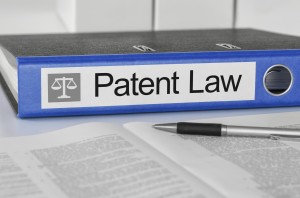 I am a fan of reports put out by patent analytics firms. I recognize that summary reports of the type I like reading serve a marketing function for the firms that put them out. But that does not detract from their utility to practitioners. For example, I recently wrote about what we could learn from Lex Machina’s 2018 Patent Litigation Year in Review Report. In that column, I explained why these types of reports are so important for IP lawyers to review, so that we can offer the timeliest and most informed advice to our clients. So let’s take a look at the newest release in the genre, and discuss what we can learn from what it discloses.
I am a fan of reports put out by patent analytics firms. I recognize that summary reports of the type I like reading serve a marketing function for the firms that put them out. But that does not detract from their utility to practitioners. For example, I recently wrote about what we could learn from Lex Machina’s 2018 Patent Litigation Year in Review Report. In that column, I explained why these types of reports are so important for IP lawyers to review, so that we can offer the timeliest and most informed advice to our clients. So let’s take a look at the newest release in the genre, and discuss what we can learn from what it discloses.
The latest report was put out by RPX, and represents that firm’s review of the year that passed in patent litigation. It is worth a read, even if you don’t feel like subscribing to RPX’s patent analytics platform. At a high level, the report argues that the “that the pendulum is swinging back” in favor of patent owners over defendants, based on “significant changes to the patent ecosystem that, on balance, weighed in favor of patent plaintiffs.” Such changes include increased success for patent owners in IPRs, some curtailing of Alice motion success rates, and venue decisions that threaten to undercut the post-TC Heartland roadblocks to forum shopping.
At the same time, while RPX hopes that its report (at least in part) will “spark further debate about the direction of the patent system,” it is important to remember that RPX’s raison d’etre remains focused on eliminating patent risk for corporate defendants — and RPX therefore benefits from a “dangerous,” pro-patent owner legal environment. Even so, that fact does not detract from the benefit RPX provides to the broader IP community by releasing reports of this type. Nor does it suggest that RPX is interpreting the data with a slant to overstating the pro-patentee developments that unfolded over 2018. The data speaks for itself and has a lot to teach us, no matter RPX’s business motivations in releasing the report.
Let’s focus on three discrete findings disclosed by the report that will help us provide better guidance to our clients. The first involves discussion of trial win rates. Yes, the overwhelming majority of patent cases settle before trial. But it is important to remember that with one interesting geographic quirk, patent cases that go to trial favor the patentee, with the report noting “six out of ten patent jury trials favor plaintiffs” nationally. That statistic includes the trial rates of the outlier — the Eastern District of Texas of all places — where the patentee win rates are nearer to an even 50-50 split.
Considering the fact that EDTX is one of the more popular places to file a patent case, and perhaps the likeliest venue for a patent case that actually makes it to trial, the fact that patentee win rates are lower in that district is very relevant. What it suggests, at a minimum, is that more weak cases make it to trial in EDTX, likely because EDTX judges are less inclined to dispose of cases at the summary judgment stage, as noted by the report. Which means that EDTX cases are likely to last longer and cost more, even as EDTX juries show that they are more than capable of deciding cases on their strength — despite the EDTX’s reputation as a district with pro-patentee juries. That said, lawyers representing defendants in other districts would also do well to remind their clients that cases that go to trial are often an uphill battle for accused infringers.
Second, in the context of noting that prices per patent acquired by RPX have stabilized after a period of significant year-over-year decline, the report identifies Intellectual Ventures (IV) as “a driver of new litigation.” In particular, the report notes that IV’s divestiture of patent portfolios to well-capitalized and motivated-to-sue-quickly, non-practicing entities has led to an increase in patent filings. This tells us at least two things. First, that we should not be surprised that after a long period of acquiring patent assets IV is looking for ways to monetize its portfolio, including by enticing NPEs to acquire portfolios from IV for immediate enforcement. Next, this activity begs the question of how juries will react to cases brought before them by IV’s NPE customers, involving patents that will have typically originated with a pedigreed technology company, then acquired by IV, and further sold off to the NPE. In particular, trying to figure out damages in a case like that will likely be very difficult, which is a topic for a future column and something to watch going forward.
Finally, the report is notable for including an update about patent litigation in China. I am coming around to the idea that Chinese courts are serving as a proxy ITC for U.S. patent holders fortunate enough to also own Chinese patents. As the RPX report notes, China is a jurisdiction where “defendants get a ‘clean win’ (a win on all asserted patents and claims) only about 20 percent of the time.” No wonder China remains an area of intense interest for patent owners struggling to gain traction with their U.S. legal efforts. While damages in China are laughably low compared to equivalent awards in the U.S., the availability and impact of injunctive relief there makes it more likely than not that we will continue to see Chinese patent litigation as a important lever for patent owners to pull for the foreseeable future.
Ultimately, we should be excited about 2018’s developments on the patent litigation front. We are fortunate to work in a dynamic area of law, with increasing complexity coming from globalization and continued development of U.S. patent law on critical issues such as eligibility, validity, and damages. So thanks to RPX for preparing their useful report, and here is to each of us making the rest of 2019 as productive and fruitful as possible.
Please feel free to send comments or questions to me at [email protected] or via Twitter: @gkroub. Any topic suggestions or thoughts are most welcome.
Gaston Kroub lives in Brooklyn and is a founding partner of Kroub, Silbersher & Kolmykov PLLC, an intellectual property litigation boutique, and Markman Advisors LLC, a leading consultancy on patent issues for the investment community. Gaston’s practice focuses on intellectual property litigation and related counseling, with a strong focus on patent matters. You can reach him at [email protected] or follow him on Twitter: @gkroub.

